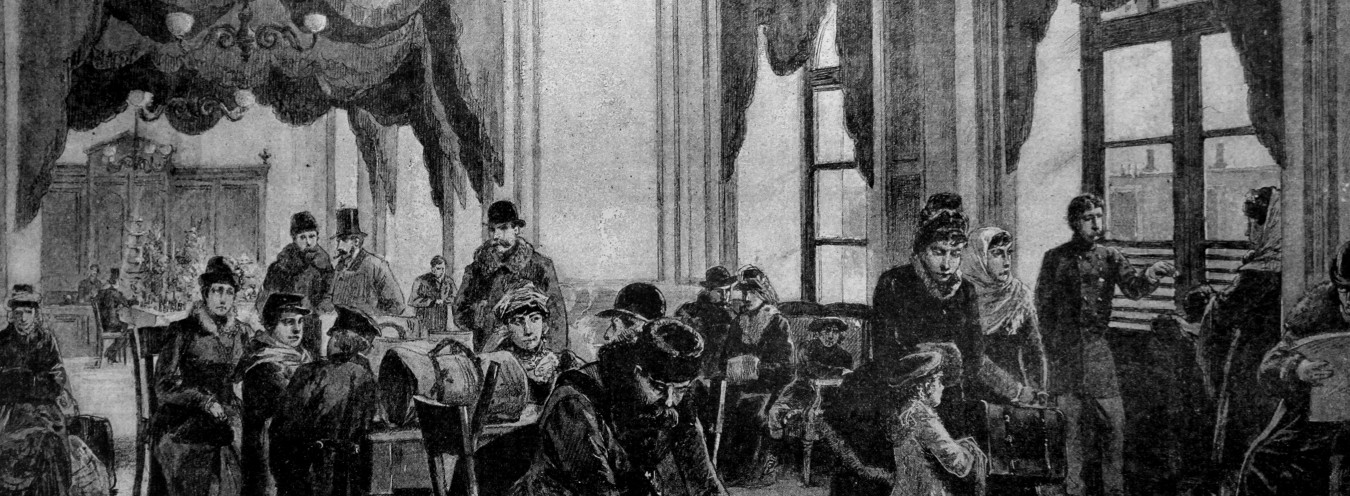
Society
Those well-beloved neighbours of mine are also society – which has never concerned itself with me, but has put up all sorts of obstacles, and keeps demanding sacrifices from me… But it is precisely what they call ‘madness’ that makes me carry out these otherwise imaginary duties. Were it not for this, I’d be wrapped up in my books like a worm, and several hundred people would have less income. So what do they expect of me? [Wokulski’s reflections]. (220)
The Doll is a multi-layered novel, imbued with intricate meaning. This is evidenced by many different aspects of the represented world, especially the characters and the metaphorical signification of the novel. The ambiguity is related to the panoramic effect and polyphony of narration, for the author decided to describe the contemporary world as complex and equivocal in order to meet his own original concept of realism that went beyond the period’s conventions and principles of narrative writing. In line with his philosophy of realism, Prus wrote The Doll as a panoramic novel that not only describes the present in all its detail and daily grind, but also faces the challenges of contemporary life and the past, culminating in a synthesis of the entire nineteenth century.
The novel’s multple intertwining plots, characters, and themes create a universe which requires its own specific language. The author finds it in colloquial speech, free of artificiality and pompousness. Every character has his or her own style that is independent of the narrator’s. This polyphony of voices allows the world to be represented as dramatically complex and discordant, since the ideas expressed by the novel’s characters are not aligned by an omniscient narrator. In this manner, Prus does not bring any hierarchy or order into the reality he represents.
The psychological acuity and sociological insight of Prus make him particularly interested in describing the novel’s characters in situations that could be called the moment of transformation on both metaphorical and literal levels. In the metaphorical reading, The Doll turns out to be a novel about searching for the New Man. Still, this search is presented against the background of social change, which is how the author builds the other, literal meaning. Prus focuses first and foremost on the structure and dynamics of social transformation at the time when the traditional forms of social coexistence are becoming obsolete in terms of history, civilisation and even anthropology (the old role models of a Polish patriot, a lover or a Roman Catholic either break down or are out of place in the changing world). Thus, The Doll represents the reality at its turning point.
The society as shown in the novel is a body not closed or static, but open and dynamic, where – as some characters, Wokulski included, tend to think – anyone can advance or degenerate. The society itself goes through the changes conditioned by a number of factors, including the historical, civilisational and cultural evolution.
The social change in The Doll does not take place as an orderly progress and development, but advances with no apparent rhyme or reason. This is because the Polish society is not an internally organised, consistent entity but a random combination of social classes, layers and groups that do not share any community values, interests or visions for the future. The principles of social coexistence are based on ideals which are no longer viable because of dysfunctions and anachronisms. The only experience that all the Polish social strata have in common is suffering occupation by foreign powers. It could be concluded that Prus offers us a panoramic view of the Polish society in decay: an anomic community where human bonds are affected, flawed or broken up completely, where cheapness and mediocrity prevail. Warsaw may well be seen as the symbol of this process. The city appears sad, unattractive, and inhabited by a society that has neither civilisational flair nor potential.
→ Aristocracy; → Intelligentsia; → Bourgeoisie; → Lower Social Strata; → The Gentry;
Bibliografia
- Lalka i inne, ed. J. Bachórz and M. Głowiński, Warsaw 1992.
- E. Paczoska, Lalka czyli rozpad świata, Białystok 1995.
- M. Micińska, Inteligencja na rozdrożach 1864-1918, Warsaw 2008.



